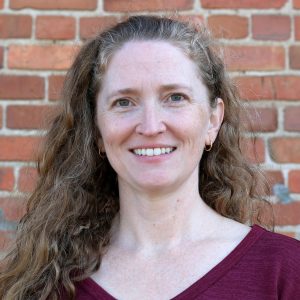
In August, Heather Baker, Metadata Associate at Duke University Libraries (DUL), celebrates her one-year anniversary as a full-time member of the Metadata & Discovery Strategy (MADS) team in Collections Services. Before the pandemic, Heather worked as a practicum student, volunteer, and intern on the MADS team, and she now contributes as an official Duke employee. We asked Heather to share some of her experiences with us from her first year.
In what areas did you feel most successful this year?
I think I succeeded in becoming an integral part of the MADS team and taking on tasks so that my fellow team members could focus on time-sensitive projects. Fortunately, MADS has been incredibly supportive and offered their time and expertise whenever I have needed it.
If I had to pick one project that was the most gratifying, it would be a cleanup project that I completed of close to 1.5 million records. While it seemed daunting at the outset, I successfully tackled it and recently checked it off my to-do list. The project involved reviewing and updating internal notes on item records, and it gave me an interesting glimpse into the library’s history. Many notes offered a timeline of a book, for example, “this book was lost in 1977 but has been found.” Some notes were so old that it was difficult tracking down anyone who might remember what those notes meant. One of my favorite notes said, “mysteriously appeared on shelf.” That’s a mystery that will likely never be solved. Overall, I was able to make these records a little bit cleaner, which is always rewarding. I also enjoyed a few book hunts through the stacks—many records had conflicting data, and an item that displayed as “lost” to patrons was actually on the shelves. Those items are now back in the circulating collection.
What did you find most challenging?
What is so interesting about MADS is that we don’t concentrate on only one process or project. There is always something new to do, and it might be completely different from what I worked on last. My challenge has been reminding myself that I will continually be presented with unfamiliar tasks and that it’s okay to feel like a beginner even after I’ve been here for a year.
What areas did you focus the most energy on?
My focus has been on data cleanup when I’m not working on routine tasks. I enjoy the meticulousness of record cleanup, and it feels good to know that I’m improving the discovery layer with each record I touch. And data cleanup has been a great way for me to learn a variety of Aleph and Aleph Reporting Center (ARC) services. It’s fun to narrow down what I’m trying to accomplish, figure out the logic of how to do it, and then find a way to execute using Aleph and ARC. I’m not always successful the first (or second, or third) time, but I enjoy the trial and error, and I have a great support system in MADS with many decades of combined expertise.
Did anything surprise you about Duke, Collections Services, or your team?
I’m surprised at how the novelty of coming to work every day has not worn off, and I think part of the reason is because I haven’t met anyone in Collections Services who appears to not like their job. In my experience it’s rare for an organization to have staff who all seem to genuinely enjoy what they do, and it makes for a great atmosphere to work in every day.
What have you most enjoyed about working in MADS?
What I’ve found most challenging has also been what I’ve most enjoyed. The new experiences that I have weekly, if not daily, make for an exciting list of projects, and as a team we enjoy figuring out solutions to new problems. It has also been great completing some less urgent projects that the team had not been able to get to in the past. The small but mighty MADS team gets the job done!
Another thing that I love about MADS is that there is never a shortage of book recommendations. My to-read list has grown considerably since I started. And chances are that someone on the team has read whatever I’m reading, so there’s always someone to discuss it with.
What do you hope to achieve in the coming year?
I’m looking forward to helping in any way I can with the Alma migration. It’s exciting to make such a major change and have everyone learning a new system at the same time. I’d also like to focus on bringing the Collections Services Documentation Portal up to the standards of Duke’s latest Web Accessibility Guidelines. Thanks to a fantastic DUL Libraries Summer Camp session on writing alternative text and helpful Duke staff, I feel ready to do what I can to improve the quality of our Collections Services resources.

